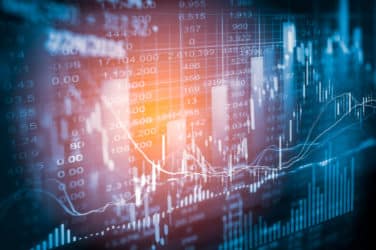By Bill Stephenson, Senior Vice President, Global Head of Trading, Franklin Templeton Investments.
Disruptive technologies and innovation will enhance speed, scale and accuracy in active asset management, and alternative data will create new sources of alpha.
Originally published on FIXGlobal.com

Bill Stephenson, Franklin Templeton Investments
Active and passive investments have moved in and out of favour through various cycles, but at Franklin Templeton, we have always been active in how we think about managing client assets, from security selection all the way through to the dynamic implementation of those strategies on the trading desk.
It has always been about technology, data and analytics, but most recently, it has been about faster and more automated technology, alternative datasets, and robust pre- and post-trade analytics.
Although we have prided ourselves as being on top of the latest trends and innovations, we have also known that there were likely many great ideas that were unheard. There was no dedicated neutral, noncommercial forum to bring our peers, competitors, innovative ideas, and new thought leaders together in a collaborative setting. That was the genesis of the AIR (Alpha Innovation Required) Summit, first held in early 2014.
Last December, we hosted our third annual event in Ft. Lauderdale, Florida. It was attended by about 185 professionals from around the world, and was deliberately kept smaller than other more mass market conferences. With executive support from the top ranks of Franklin Templeton, our president, Jenny Johnson, kicked off the event by describing how innovation is driven by bringing thought leaders together so that we can learn from each other in a collaborative and reflective environment.
A community of people who want to think critically about innovation and the future of active management is imperative to our success as an industry. And the true measure of that success is the execution of these ideas, which is by far the hardest step in actual innovation.
While the event covered the general topic of innovation within financial technology (Fintech), our focus went deeper. It examined technology that helps a trader, portfolio manager, analyst, or risk manager make a better or faster decision. This sub-section alone is massive, where we vetted hundreds of companies a year, but eventually selected 20 to present.
In addition, more of the innovation is appearing globally. Five of the presenters in 2016 were from outside the US, up from four and two in 2015 and 2014, respectively. The 20 ideas presented can be truly disruptive within investment management if the vision can be realized by their founders and the potential users of that technology, such as firms like ours.
The meaning of disruption
By disruptive, we mean technology that can dramatically change how asset managers pick securities, how they might construct portfolios and how they might trade in the marketplace. This could require different skill-sets, but in order to truly innovate, the industry must overcome the fear that certain job functions might change or evolve faster than individuals can learn them.
The most disruptive technology will bring speed, scale, and accuracy to a new level. It will also be accomplished with data that doesn’t yet exist or data that isn’t structured to be consumed in a productive way to make real decisions. That is why it will likely become more important for asset managers to build an infrastructure to find, scrub, normalize, model, and inject this data into an existing and proven strategy. Basically, it is the formation of a research and development hub with a team of data experts, quants, data scientists, and investment personnel that understand the full investment process, including the existing “secret sauce”.
This is not just plugging a black-box into a fundamental approach: it is about integrating new sources of information that can help better predict fundamental inputs into an investment process. This is no simple task, because it requires a significant investment in people and technology, along with a strong culture that embraces new approaches.
Every year we have held the AIR Summit, the feedback at the end of the event is the same: everyone is a bit overwhelmed with the feeling that they are so far behind and by how much they didn’t know existed. It can be staggering to hear how individuals and companies are re-inventing how and why decisions are made, in more and more unconventional ways.
New alpha
However, as decision making is re-invented, there may not be a historical process that will stand the test of time in the way it has for decades in the past. The shelf-life for an alpha-generating strategy is becoming shorter, which has been running in parallel to the amount of time it now takes for information to travel. Not only is information dissemination faster than ever, but insight is created from it across a range of data points – almost instantaneously.
Innovation not only drives our process, it also drives new products faster than ever. Investment products created specifically around new data sets, such as social- or crowd-sourced data, are leading investment managers to find new ways to leverage sentiment to create alpha.
We call it “new alpha” because outperformance in the future will be driven by new or alternative data sets that are created from potentially unconventional sources. Those sources might be GPS tracking smartphone applications, satellite imagery, car insurance information or credit card transaction data – to name just a few. Some of these data sources might not even be considered “alternative” anymore since new primary sources of data seem to be created and monetized regularly, some of which might have been considered useless “exhaust data” in the past.
Machines learning to be humans
Data scientists, or the professionals who extract insights from data, seem to be hooked on artificial intelligence or, more specifically, machine learning. With machine learning it is all about leveraging data and predictive analytics, and then systematically “learning” and modifying behaviour in the future based on the new insights gained from the data. This could be the most interesting and disruptive force to affect our process as it will spawn new and improved strategies faster than we could have ever created in the past. The challenge is determining where machine learning fits in the process without creating too much of a black-box approach.
At the latest AIR Summit, participants frequently recalled the new HBO series called Westworld, where human-like robots were programmed, as part of a game, to be emotionally nuanced in order to appear more human. As the parallels between the show and the innovations we were discussing for those two days appeared to converge, it seemed that perhaps decision-making could become even more automated in the future, with alpha driven by how well your “bots” can interpret new information in a more human-like way.
If we consider how far algorithmic trading has come during the past 15 years, maybe the “bots” will eventually be better than humans across multiple dimensions of our investment decision making process. For now, however, we agree with businessman and philanthropist Paul Tudor Jones, who recently said, “No man is better than a machine, and no machine is better than a man with a machine.”
Blockchain potential
No discussion about Fintech and disruption is complete without mentioning blockchain, which has been one of the most globally-hyped innovations over the past year or so. From the Australia Securities Exchange’s use case for settlements and clearing to the UK’s suggestion that this kind of distributed ledger technology could help collect taxes, issue passports, and register land – the opportunities within finance and elsewhere are exciting.
Yet, although there will likely be significant innovation in and around blockchain technology in finance, such as smart contracts, the impact of it within investment decision making could be much further out into the future. However, given all the research and development (expected to exceed $1 billion by banks in 2017), regional “hack-a-thon” events, and hundreds of global patent applications, it wouldn’t surprise us if AIR 4.0 will feature more on blockchain technologies that touch the investment process.
Finally, if we take a step back and think about all this innovation in the context of a trading operation, then trade execution is where alpha can be created or lost – it’s where the rubber meets the road. It can involve timing, emotion, speed and a host of other factors that can be improved with data, automation, technology, and of course human interaction.
Whether it is in the trading function or elsewhere in the investment management process, innovation isn’t going away. A different type of thinking, with alternative tool-sets and the associated skills to create new alpha will be in high demand, and a significant investment in pushing forward these innovations will benefit end clients. Embracing Fintech, no matter where in the world it might be developed, is really our only option not just to compete, but to ensure active management thrives.






